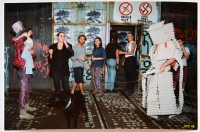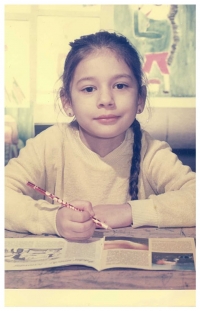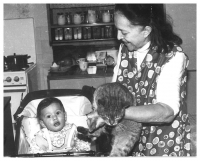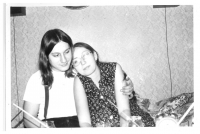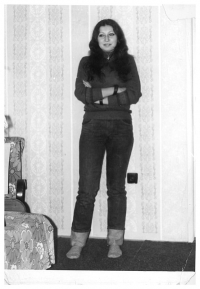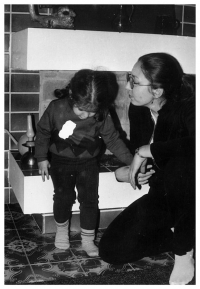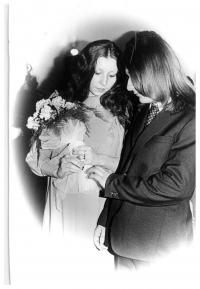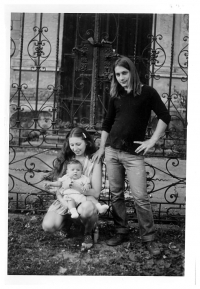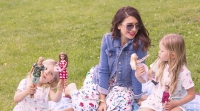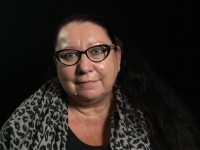The easiest way to control people is to cause fear

Download image
Jiřina Nehybová was born on 7 April 1961 in Uherské Hradiště into a family with an interesting history. Among her relatives there are German and Czech ancestors, former tradesmen and members of the communist party. She spent most of her childhood in Ivančice, where she experienced the Soviet occupation in 1968 and the period of the beginning of normalization. She could not study her dream art school, but thanks to her mother’s activity she was admitted at least to the grammar school in Ivančice. She was greatly influenced by her trips to her aunt in Dolní Kounice, where she met the local underground community. She participated in organizing various unofficial exhibitions, got access to samizdat and became acquainted with the so-called defective youth and dissidents. Along with her husband Roman Nehyba she moved to Brno, where their daughter was born in 1983. At that time they began to print samizdat. First at Veveří, and following her husband’s death she continued printing in the house in Židenice. She also worked with the Müllers. After the Velvet Revolution she entered politics for a while; she recalls the split in the Civic Forum in Brno, and ran for municipal elections in the ranks of the Association for Brno, where a number of participants of the Velvet Revolution and cultural personalities were involved. As a member of the municipal council of the statutory city of Brno, she worked in cultural committees, the independent Brno Parliament of Culture. From 1992 to 2000 she chaired the Culture Commission. In 2012, she founded the Thirteen Gallery in the center of Brno. In 2019 she moved to Prague.
